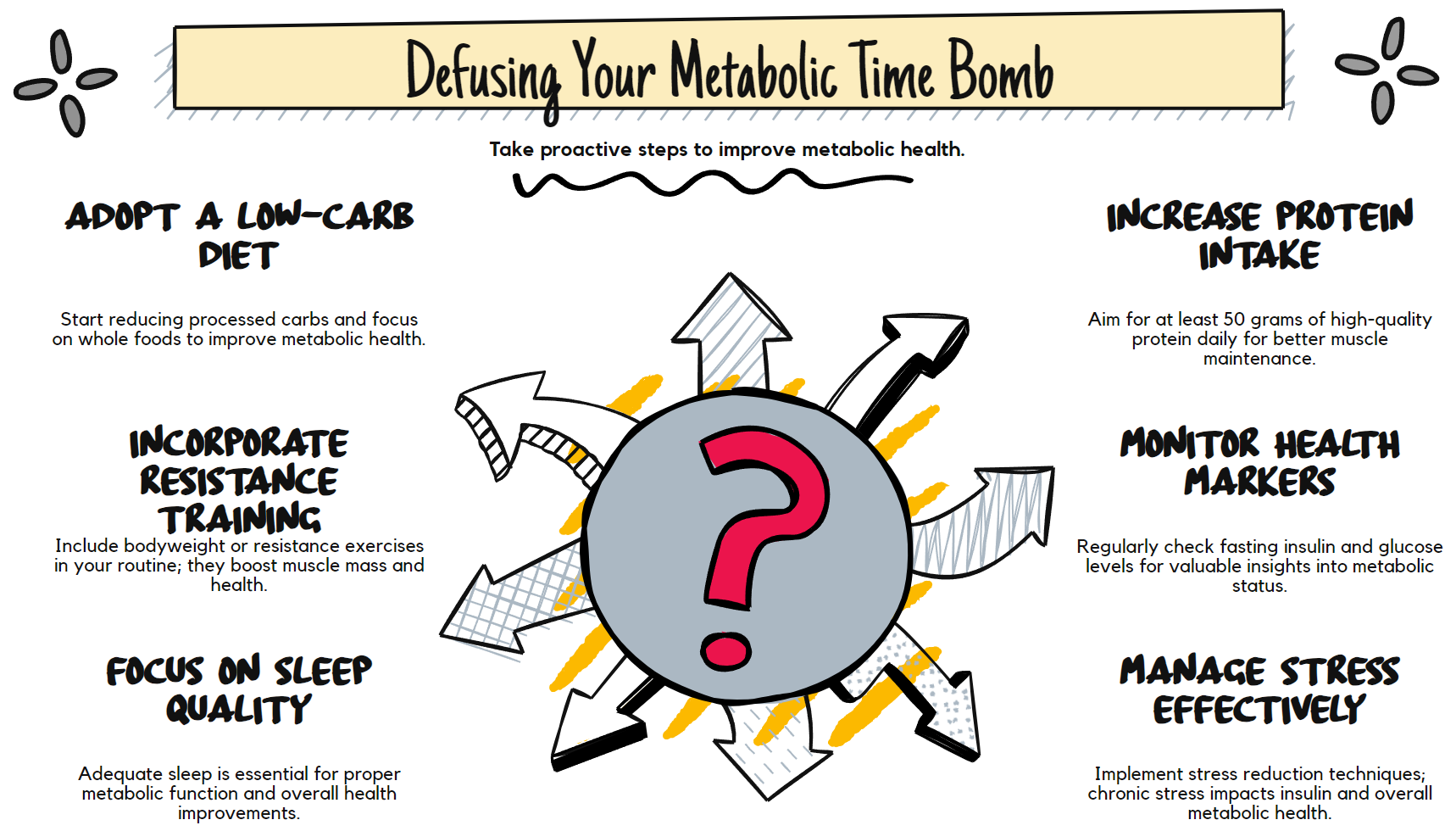
The Metabolic Secret That Could Save Your Life
The Metabolic Secret That Could Save Your Life
Your body is a ticking time bomb of metabolic dysfunction. Even as you read this, silent damage could be accumulating in your cells, setting the stage for a health crisis years down the road. But here's the kicker: you have the power to defuse this bomb.
Dr. Andrew Koutnik, a leading expert in metabolic health, warns that the path to metabolic dysfunction is a slow burn. "There's this multi-year progression of metabolic dysfunction that accumulates over time," he explains. The problem? Most people don't realize they're on this dangerous path until it's too late.
The Hidden Epidemic
Metabolic health isn't just about weight or diabetes. It's about how your body processes energy at a cellular level. And the statistics are alarming. According to the CDC, over 51% of adults had prediabetes, with a staggering 80% unaware of their condition. This silent epidemic is the precursor to a host of chronic diseases.
But here's the good news: metabolic dysfunction is reversible. The key? Early intervention.
The Carbohydrate Conundrum
At the heart of metabolic health lies your body's relationship with carbohydrates. Dr. Koutnik emphasizes the power of carbohydrate reduction as a therapeutic tool. "Low carbohydrate is one lever to pull," he states, "but when you really see a reliable improvement, it's usually because they went to the ketogenic diet spectrum."
Why does this work? It's all about insulin. When you consume carbs, your body releases insulin to manage blood sugar. Over time, excessive carb intake can lead to insulin resistance, where your cells become less responsive to insulin's effects.
Ketogenic diets, by drastically reducing carb intake, lower insulin levels and shift your body's primary fuel source from glucose to fat. This metabolic switch can have profound effects on your health.
Beyond Carbs: The Insulin Insight
But it's not just about carbs. Insulin itself plays a crucial role in metabolic health. Dr. Koutnik explains, "Just the mere presence of excess insulin in the periphery can result in insulin resistance." This insight comes from his experience with type 1 diabetes, where insulin must be carefully managed.
For those without diabetes, this means that even if your blood sugar looks normal, chronically elevated insulin levels could be causing damage behind the scenes.
The Exercise Equation
Diet is just one piece of the metabolic puzzle. Exercise, particularly resistance training, is crucial for maintaining metabolic health. Why? It all comes down to muscle mass.
"The higher your muscle mass, the lower your risk for chronic disease," Dr. Koutnik states. Muscle tissue acts as a metabolic sink, helping to regulate blood sugar and improve insulin sensitivity.
But you don't need to become a bodybuilder. Regular resistance exercise, combined with adequate protein intake, can significantly improve your metabolic health. And the benefits extend beyond metabolism. Research shows that exercise can be more effective than medication for treating conditions like depression and anxiety.
The Urgency of Action
The most critical takeaway from Dr. Koutnik's insights is the importance of early action. "The day for action was yesterday," he emphasizes. "But every day you do improve metabolic health is a day earned."
Even if you've already developed metabolic dysfunction, all is not lost. While some damage may be irreversible, improving your metabolic health can still dramatically reduce your risk of chronic disease and improve your quality of life.
Your Metabolic Action Plan
Ready to take control of your metabolic health? Here's your action plan:
1. Consider a low-carb or ketogenic diet approach. Start by reducing processed carbs and focusing on whole foods.
2. Prioritize protein intake. Aim for at least 50 grams of high-quality protein per day, spread across your meals.
3. Incorporate resistance training into your routine. Even bodyweight exercises can make a significant difference.
4. Monitor your health markers. Regular check-ups, including fasting insulin and glucose tests, can provide valuable insights into your metabolic health.
5. Focus on sleep and stress management. Both play crucial roles in metabolic function.
Remember, metabolic health is a journey, not a destination. Small, consistent changes can lead to significant improvements over time. Your future self will thank you for the steps you take today to defuse that metabolic time bomb.
The secret to saving your metabolic health isn't really a secret at all. It's about understanding the science behind how your body works and taking proactive steps to optimize its function. With the insights provided by experts like Dr. Koutnik, you have the power to rewrite your metabolic destiny.
Don't wait for a health crisis to spur you into action. Start your metabolic health journey today. Your cells are counting on you.
